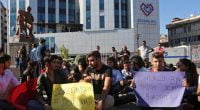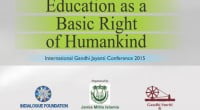Extradition of Turkish Citizens: Moldova to pay 125,000 euros in damages for rights violations

Date posted: September 10, 2019
Almost one year has passed since seven Turkish citizens working at a high school were extradited from the Republic of Moldova. Since then, their case was brought before the European Court of Human Rights (ECtHR) and Moldova was forced to pay 125,000 euros in damages for rights violations. Since the ECtHR ruling, the country’s Office of the Prosecutor General has announced the initiation of a criminal investigation against the employees of the Bureau for Migration and Asylum of the Ministry of Interior and of the Security and Intelligence Service, for abuse of power and overstepping of authority that took place during the deportations. To mark the anniversary of the deportations, ZDG looks back at the development of the case over the past year.
In 2018, ZDG investigated the masked extradition of the seven employees of the Orizont high school network, as well as the 11 other Turkish citizens that were forced to leave Moldova’s territory after being declared “undesirable persons” in the country.
The crackdown began in May 2017, when, during an official visit to Moldova, the Turkish Prime Minister Binali Yildirim asked Moldova’s then Prime Minister Pavel Filip to close the Orizont high school. According to the Turkish Prime Minister, this school (one of the top schools in Moldova) was part of a terrorist group led by Fethullah Gülen – a cleric who has been living in self-imposed exile in the United States since 1999, as a result of his strained relationship with Turkish President Recep Tayyip Erdoğan.
At a press conference, the former Prime Minister Filip acknowledged that his Turkish counterpart had made such a request, suggesting that evidence would be needed to put it into practice.
“I also discussed with Prime Minister Yildirim the subject of some high schools. You must understand that Moldova has its own legal framework and all institutions in the field of education must respect and comply with it. At the same time, if there is evidence, of course, we expect experts from Turkey to come and get in touch with the force structures, such as the Security and Intelligence Service or the Ministry of Internal Affairs, so that we can address this question exactly in the legal framework,” said Pavel Filip.
Several months later, in the fall of 2017, then-Speaker of the Parliament Adrian Candu and Vladimir Plahotniuc, the former leader of the Democratic Party and self-appointed coordinator of the ruling coalition, made an official visit to Turkey to meet with President Erdoğan.
November 2, 2017: case filed at the Prosecutor’s Office for Combating Organized Crime and Special Cases (PCCOCS)
The Orizont high school network was opened in 1993 and had operated in Moldova without any problems since then. On November 2, 2017, after Plahotniuc ended his visit to Turkey, criminal problems started against the Orizont high school network.
The Prosecutor’s Office for Combating Organized Crime and Special Cases began searching for evidence so that the problem could be addressed “in the legal framework,” as stated previously by Pavel Filip.
The criminal prosecution was initiated on the basis of two articles of Moldova’s Penal Code: “financing of terrorism” and “recruiting, training, benefiting from training or providing other support for terrorist purposes.” The case was aimed at the administration of the Orizont high school network, but no one made the existence of the case public at the time.
The criminal prosecution was initiated to demonstrate that since 1993, a number of people of Turkish origin living on Moldovan territory had acted through companies – including resident trading companies – to finance transnational organizations promoting extremist ideologies of a terrorist nature.
According to the prosecutors, through the activities carried out in the field of education, mass media and in the business world, persons of Turkish origin used their positions to recruit other people to join terrorist groups and organizations.
The statements before the prosecutors from Orizont’s (ex)director
In January 2018, the Turkish Embassy in Chișinău announced the company that would be responsible for repairing the Presidency headquarters, after Tukey made a commitment to repair it.
On March 31, 2018, Turgay Șen, director of the Orizont high school network, was recognized as suspected in the criminal case initiated by the PCCOCS, and escorted to hearings.
According to information held by ZDG, Turgay Șen, who has been running the Orizont high schools in Moldova since September 2012, did not plead guilty. He told prosecutors that he has studied law and that he has never been accused of extremist or terrorist acts before.
Turgay Șen also told prosecutors that he visited Turkey for the last time on October 2015, adding that he had not returned since “because of the dictatorial regime established by the president of this country.”
Șen mentioned then that, in his circle of acquaintances, no one supports extremist or terrorist ideologies and that such ideologies are not implemented in the activity of the high school. The program of study is coordinated with the Moldovan Ministry of Education and strictly monitored by this institution.
Turgay Șen also added that the high school is a transparent institution, funded by the tuition fees parents pay. He also told the prosecutors that the Orizont high school network has founders from Moldova, Romania, the Netherlands, Denmark, Turkey, and the United States. He knows all the founders and none of them is a member or an associate of a terrorist organization unanimously recognized by the international community.
On March 31, 2017, Turgay Șen was banned from leaving Moldova for ten days. But at the expiration of the term, he was removed from criminal prosecution because “the act does not meet the elements of the crime.” One of the prosecutors concluded that “a person’s guilt for committing a crime cannot be based on assumptions.”
Turgay Șen left Moldova and went to Kosovo
A few months after he was released from criminal prosecution, Turgay Șen left Moldova and went to Kosovo. Șen is one of the founders of the network of high schools, which operates in about 100 countries around the world. He also holds Kosovan citizenship – and Kosovo does not extradite its citizens. Meanwhile in Moldova, his criminal prosecution continued.
At the time, the former assistant chief of the PCCOCS, Vitalie Busuioc, told ZDG that the operation that expelled the seven employees of the Orizont high school from Moldova was not coordinated with PCCOCS and is not the result of a criminal case.
When asked how the criminal investigation on terrorism opened by PCCOCS in November 2017 ended, Busuioc asked for time to get the information. However, when attempts were later made to reach him, he did not answer the phone.
Turgay Șen left for Kosovo to lead the country’s high school network. But at the end of March 2018, six Turkish teachers and leaders were detained by Kosovo and Turkey’s secret services and forcibly returned to Turkey – just like in Moldova.
After the operation, Kosovo’s Prime Minister dismissed the Interior Minister and the head of the secret services. He later publicly promised that this would never happen again on the territory of his country.
Declared “undesirable” for five years
Even though Turgay Șen was no longer in a criminal investigation since April 10, 2018, he was still listed as “undesirable”, along with seven other employees of the Orizont high school on September 6, 2018, when the latter were expelled.
On September 5, 2018, Olga Poalelungi, the director of the Bureau for Migration and Asylum (an institution subordinate to the Ministry of Foreign Affairs) signed decisions declaring the seven Orizont high school employees and Turgay Șen “undesirable” on Moldova’s territory.
The reasoning behind the declaration is not mentioned in the decisions Olga Poalelungi signed.
In the case of Riza Dogan, the director of the Durlești branch of the Orizont high school, which has been operating in Moldova for more than 20 years, the Bureau for Migration and Asylum declared him an “undesirable person” for a term of five years. The decision was based on the first paragraph of Article 58 on the legal regime for foreigners in the Republic of Moldova: “Removal under the escort of a foreigner.”
According to the article, the foreigners should be escorted by the local competent authorities’ personnel, to the border crossing point or to their country of origin or destination.
The seven Orizont employees were escorted by the Secret and Intelligence Services to the Airport, and they were taken from there to a former military airport in Turkey on a plane chartered by Air Moldova.
Access prohibited to the BMA
On the morning of September 6, 2018, the Security and Intelligence Service picked up Riza Dogan. However, the Bureau for Migration and Asylum only sent him a copy of the decision by mail on September 10. At that time, Dogan was already being held in a maximum-security prison in Turkey, along with his six other colleagues from Orizont.
In fact, discussions with the families of the seven Orizont employees declared “undesirable” on the territory of the Republic of Moldova, indicate that most of them were escorted to Turkey without identity documents, without being presented with the decisions by which they were declared “undesirable persons,” and therefore without the possibility of challenging the decisions.
At the time, ZDG tried to discuss the circumstances of the case with Olga Poalelungi, but she did not answer phone calls.
ZDG also sent an official request for information the day the case became public, but received no response.
On September 12, ZDG was denied access to the headquarters of the Bureau for Migration and Asylum. We were then notified that no one in the administration of the institution was there to talk to us.
The name of Ion Baciu, an officer for the Bureau for Migration and Asylum also appeared in the documents signed by Olga Poalelungi regarding the seven Turkish citizens from Orizont. However, he refused to discuss the subject.
Who were the seven employees of the Orizont high school declared “undesirable”
Two of the seven employees of the Orizont high school sent back to Turkey were teachers, and the other five held administrative functions within the educational institution. Most of them have families in Moldova and children who hold Moldovan citizenship. Some of them have lived in Moldova for over 20 years.
Some of them even have pages on social networks, where they display photos that include people from Moldova, with whom they have had friendly relationships.
Riza Doğan was the director of the Durlești branch of the high school, who had lived in Moldova for over 20 years. Doğan is married and has two daughters – both born in Moldova. In a video recording on social media, the two have asked the authorities to release their father.
“I was born in Moldova. I love Moldova. I want our father back,” they said, in Russian and Romanian. According to public data, Riza Doğan was also a founder of a company in Moldova.
Yasin Ozdil, another Turkish citizen, was responsible for public relations within the high school network. Active on social media, Ozdil was the only one of the seven who managed to make a public announcement about his detention.
“They came into my house to catch me. Please, the police, help me,” he wrote at 8:42 a.m. on September 6.
Hasan Karacaoglu had been in Moldova for more than 20 years, during which time he only worked for Orizont. He held the position of Deputy Director.
Feridun Tufekci was the director of the branch in Ceadîr-Lunga. He came to Moldova to study when he was 17 years old. He studied in Moldova and later married his teacher, Galina. Feridun practiced journalism and for a period of time also worked as a foreign correspondent on Turkish television.
Sertif Ayri had been in Moldova for about three years and taught Turkish at the Bălți Orizont high school. The fact that Ayri was on the list of the seven high school employees deported to Turkey was found out only the next day. He was detained on September 6. His family remained in Moldova.
Huseyin Bayraktar was also a Turkish language teacher, who had been in Moldova for about three years.
Another 11 Turkish citizens, Gülen’s supporters, declared “undesirable”
In addition to the seven Orizont high school employees, ZDG found a list of 18 people, all Turkish citizens who have been declared “undesirable persons” on the territory of Moldova.
Along with the former director of the Orizont network, Turgay Șen, there are also businessmen named on the list. Some of them have been established in Moldova for several years, while others commute between the two countries.
However, all 18 have something in common: they are assumed to be supporters of the Turkish cleric Fethullah Gülen.
After the parliamentary hearings took place the information about the list of the 18 “undesirable” Turkish citizens was first made public by then-President of the Parliament, Andrian Candu, during a press briefing organized on September 8, 2018. The then-head of the Legislature did not provide details about the 18 people.
Alina Zbancă, a then-adviser of the Minister of Internal Affairs, told ZdG that all 18 people referred to by Andrian Candu have already been notified that they can no longer stay on the territory of Moldova. However, Zbancă did not confirm the fact that all 18 “undesirable persons” are citizens of Turkey.
The European Court of Human Rights asks the Government for explanations
Five of the Turkish citizens declared “undesirable” have since brought their cases to the European Court of Human Rights (ECtHR). On September 7 2018 the ECtHR announced that it had accepted the request for an examination.
The court asked the Moldovan Government for explanations on the case by October 5, 2018, and procedures were suspended until that day. The Court’s text states that the Government was asked to answer a few questions, such as whether the Turkish citizens had the opportunity to challenge the decision on extradition or if they have requested political asylum in Moldova.
The ECtHR was notified of the expulsion of the seven Turkish citizens from Moldova by Vitalie Nagacevschi, the president of the Jurists for Human Rights Association.
“In the first application, I only requested the provision of provisional measures. Now, we are going to complete the application in order to request a violation of the Convention. Here I refer to articles aimed at the prohibition of torture, the right to a fair trial, the right to liberty or to personal life,” explained Nicolae Frumosu, a lawyer within the Jurists for Human Rights Association.
“In order for the expulsion to be applied, there must be a judicial decision of the national courts. In order for a decision to be made, the person must be brought before a judge. In order for the person to be brought before a judge, he/she must benefit from the right to defense. Given the fact that people were sent directly to Turkey, this does not seem to be an expulsion. As in the case of expulsion, when the person is declared undesirable, one can leave [for] wherever one wants. Only in the case of extradition, the person is sent to the requesting State. In that case, it would seem to be a camouflaged extradition. The procedure of declaring an undesirable person is an administrative one, but it must also pass the control of the legality of the courts,” Nicolae Frumosu pointed out.
In June 2019, the ECtHR issued their decision, pointing to the violation of articles 5.1 and 8 of the European Convention on Human Rights. The decision summons the Government of Moldova to pay 25,000 euros to each of the five Turkish citizens involved in the case, whose rights were infringed upon by forcible expulsion.
Children of former dignitaries, students or graduates of the Orizont High School
The Orizont network of high schools (formerly called the Moldo-Turc High School) started its activity in Moldova in 1993, to strengthen the friendship between Moldova and Turkey. Orizont currently has five branches: Ceadîr-Lunga, Bălți, Durlești and Chișinău (in the Ciocana and Buiucani districts). The Orizont high school has been ranked first among the country’ high schools for obtaining the most medals at the national and international academic Olympics.
Although politicians and the employees of the force structures are now accusing the institution of terrorism, in past years the children of hundreds of civil servants and politicians have graduated from the institution – and many of them still study there.
For example, up until last summer, the child of the former President of the Parliament, Andrian Candu studied there, as well as the daughter of the former interim head of the State Protection and Guard Service, Anatolie Golea.
Gülen, Erdoğan’s former close associate, who became his main rival
Fethullah Gülen is a 77 years old Turkish citizen who is recognized as an Islamic scholar, thinker, poet, and prolific writer. He has been living in self-exile in the United States since 1999.
Gülen is an Islamic preacher considered to be the inspiration for a global social movement, commonly known as the Gülen or Hizmet Movement, which has become a significant phenomenon in Turkey and around the world. The community currently has several million followers, who have been involved in hundreds of projects focused on civil society and have opened more than 800 schools worldwide.
Gülen is also Erdoğan’s former ally, who was said to have helped him come to power. He was once even a member of President Erdoğan’s Righteousness and Justice Party.
The relationship between the two deteriorated in 2013. Shortly after consolidating his political power, Erdoğan called Gülen a terrorist and included his Hizmet movement, on the list of terrorist organizations in Turkey. At the same time, Erdoğan eliminated the affairs of some other people considered close to Gülen, closing newspapers and TV stations that were said to be controlled by his former ally. Turkey has repeatedly called for the U.S. to extradite Gülen, albeit unsuccessfully.
In 2016 Erdoğan, accused Gülen of the failed putsch that took place in Turkey, even though Gülen’s group condemned the attempted coup. There were, however, other voices that claimed that the so-called coup d’état could have been set up by Erdoğan himself.
After the failed 2016 coup, Erdoğan ordered the concentration of absolute power in his hands and called for the arrest of those considered Gülen’s followers. A hunt for Gülen’s supporters abroad began.
According to information released by the Turkish Prime Minister, over 100 Turkish citizens (most of them working in education) have been captured abroad and forcibly taken back to Turkey. There was no definite verdict on their name at the time of ZDG reporting in 2018.
Source: Ziarul de Gardă , September 9, 2019
Tags: Education | Europe | Hizmet-inspired schools | Moldova | Persecution of Hizmet by Erdogan |
























